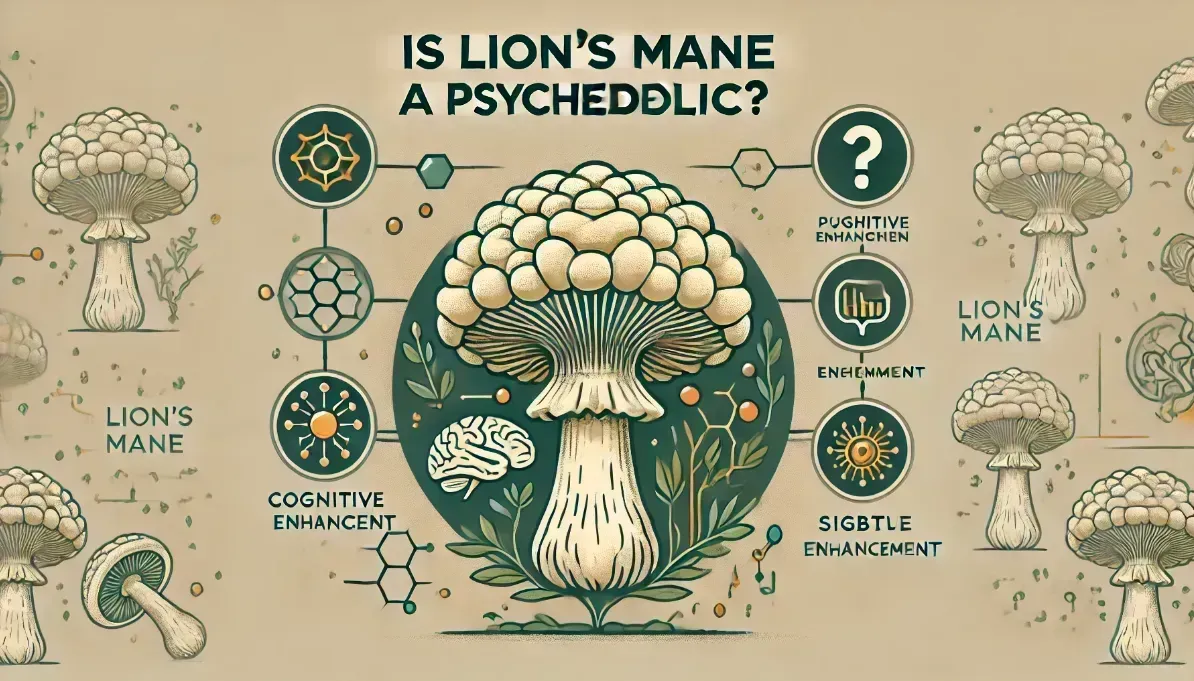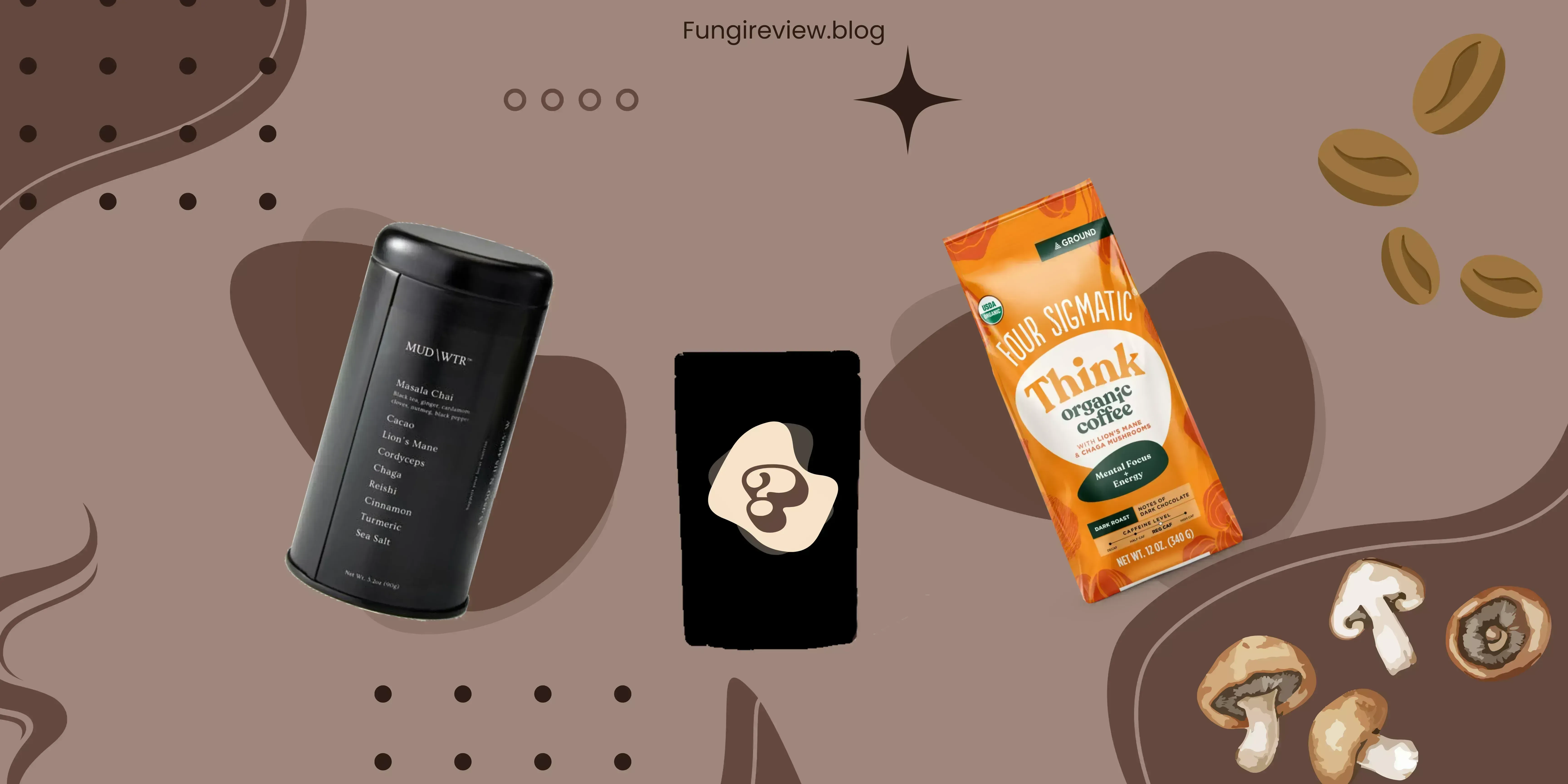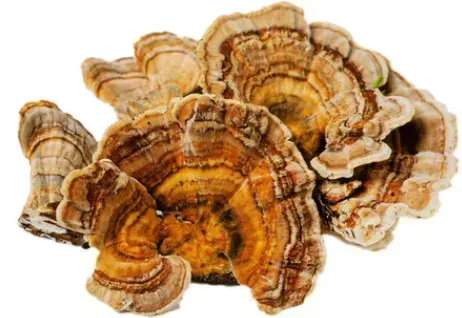Lion's Mane mushroom (Hericium erinaceus) has become increasingly popular in the world of natural supplements, praised for its potential cognitive benefits, immune support, and overall wellness properties. However, as more people become interested in the effects of this unique mushroom, a common question arises: Is Lion's Mane a psychedelic? In this blog, we'll explore the facts, debunk the myths, and provide a clear understanding of what Lion's Mane really does.
What Is Lion's Mane?
Lion’s Mane is a medicinal mushroom with a distinctive appearance that resembles the shaggy mane of a lion. It has been used for centuries in traditional Chinese medicine for its various health benefits, particularly in supporting brain health and cognitive function. The benefits of lion's mane are backed by modern scientific research, which highlights improvements in cognitive functions, mood enhancement, and potential neurological support like nerve growth factor (NGF). Modern research has shown that Lion’s Mane mushrooms contain two primary bioactive compounds, erinacines and hericenones, which are believed to stimulate the production of nerve growth factor (NGF), a protein that plays a crucial role in the growth, maintenance, and survival of nerve cells. Additionally, lion's mane mushroom legal status makes it widely accessible both in health stores and online.
For more detailed information on the bioactive compounds found in Lion’s Mane and their benefits, check out our “Science Behind Mushroom Supplements” blog.
The Psychedelic Myth: Where Does It Come From?
The idea that Lion’s Mane might be a psychedelic likely stems from the general association people have with mushrooms and mind-altering effects. After all, certain types of mushrooms, such as Psilocybe cubensis (commonly known as “magic mushrooms”), contain psilocybin, a compound known for its powerful psychedelic properties. However, Lion’s Mane does not belong to the same category as these psilocybin-containing mushrooms.
Lion’s Mane is not a psychedelic. It does not contain psilocybin or any other compounds that induce hallucinations or alter perceptions. Instead, its effects are more aligned with cognitive enhancement and neuroprotection. Users of Lion’s Mane often report improved focus, memory, and mental clarity, but these benefits come without the psychoactive effects associated with psychedelic mushrooms. The term 'lion's mane mushrooms psychedelic' is a misconception; these mushrooms do not cause hallucinations. While many people associate mushrooms with hallucinogenic effects, lion's mane psychedelic properties are non-existent, emphasizing its non-psychoactive nature.
Does Lion's Mane Make You Trip?
No, Lion’s Mane does not make you trip. Unlike psilocybin mushrooms, which can induce visual and auditory hallucinations, a sense of euphoria, and a distorted sense of time and space, Lion’s Mane works differently. Its primary effect is on the brain’s cognitive functions, supporting clarity and mental acuity rather than altering your state of consciousness. Lion's mane extract is a legal and widely accessible supplement that offers various health benefits, particularly for cognitive function and mood enhancement.
This makes Lion’s Mane an appealing option for those looking to support their brain health without experiencing the mind-altering effects of psychedelics. If you’re interested in how Lion’s Mane can be used to support cognitive function, you can learn more in our Lion’s Mane Supplement Guide. Additionally, lion's mane supplements have been shown to provide mental health benefits, including mood enhancement and reduction of anxiety and depression.
Is Lion's Mane Legal?
Yes, Lion's Mane is completely legal. Unlike psilocybin mushrooms, which are classified as Schedule I substances under the Controlled Substances Act in the United States, Lion's Mane is widely available as a dietary supplement. It can be purchased in various forms, including capsules, powders, and tinctures, from health food stores, online retailers, and even some grocery stores.
Lion's Mane's legality stems from the fact that it does not contain any psychoactive compounds that would classify it as a controlled substance. Its use is generally considered safe, and it's well-regarded for its health benefits rather than any recreational use.
Are Lion's Mane Mushrooms Hallucinogenic?
The term “psychoactive” refers to substances that affect the mind or behavior. While Lion's Mane does have effects on the brain, particularly in supporting cognitive function, it is not psychoactive in the traditional sense. It does not produce euphoria, hallucinations, or any other mind-altering effects typically associated with psychoactive substances.
Instead, Lion's Mane may help enhance mental clarity, focus, and memory by promoting the health and growth of nerve cells in the brain. These effects make it a valuable supplement for those looking to improve their cognitive health, especially as they age.
For a deeper understanding of how Lion's Mane interacts with the brain, explore our Fungi Potency and Purity Guide.
The Science Behind Lion's Mane: What Research Says
Scientific studies on Lion’s Mane have focused primarily on its neuroprotective and cognitive-enhancing properties. Research has shown that Lion’s Mane may help protect against neurodegenerative diseases such as Alzheimer’s and Parkinson’s by promoting the production of NGF. Additionally, animal studies have suggested that Lion’s Mane may help reduce the buildup of amyloid-beta plaques in the brain, which are associated with Alzheimer’s disease. Moreover, Lion’s Mane has been noted for its potential benefits on mental health, including mood enhancement and cognitive function improvement.
Human studies have also shown promising results. For example, a study published in the National Library of Medicine journal found that older adults with mild cognitive impairment who took Lion’s Mane supplements experienced significant improvements in cognitive function compared to those who took a placebo. These findings suggest that Lion’s Mane may have a role in supporting cognitive health, particularly in aging populations. Additionally, research indicates that Lion’s Mane may help alleviate symptoms of various mental health conditions, such as anxiety and depression. The potential health benefits of Lion’s Mane extend to overall health improvements, including enhanced immunity and reduced inflammation.
If you’re interested in exploring the scientific research behind Lion’s Mane, you can find more information in
Further Research on Lion's Mane Mushrooms:
Furthermore, a trial report on Lion's Mane Mushrooms done by the Alzheimer's Drug Discovery Foundation found preclinical evidence suggesting Lion's Mane may provide benefits to individuals with Alzheimer's. Thanks to its properties like Erineracine, which have been proven to have the potential to boost nerve growth factor and enhance cognitive functions. Patients in the trial conducted in Japan had been diagnosed with mild cognitive impairment, and after the trial, several had enhanced cognitive function. Although there isn't enough research on Lion's mane done as yet, there have been a lot of tests done with promising results.
Lion's Mane Potential Health Benefits Summary:
Combating Oxidation and Inflammation: It's true that oxidative stress and chronic inflammation are linked to a number of health problems, including neurological illnesses. The strong anti-inflammatory and antioxidant properties of lion's mane mushrooms help protect against oxidative stress and reduce inflammation. Thus, by shielding brain cells and encouraging their growth, this protective effect improves brain health overall and may reduce the risk of Alzheimer's or Parkinson's disease.
Encourage Mental Health: According to research, there are enormous spiritual benefits from lion's mane. According to preliminary studies, lion's mane mushrooms may have anxiolytic and antidepressant properties. Lion's Mane may improve mood and lessen the symptoms of anxiety and depression by reducing inflammation and affecting the release of serotonin and dopamine.
Increasing Immunity: The bioactive polysaccharides found in lion's mane mushrooms, such as beta-glucans, can help strengthen your body's defenses against infection. Additionally, these boost your body's immune response, which could improve the way your system fights off infections and illnesses. If your immune system is compromised and nothing seems to be helping, consider trying medicinal mushrooms for their possible advantages.
Encouraging Digestive Health: Lion's Mane has anti-inflammatory properties that may help your gut feel less inflamed, which will encourage the growth of more beneficial bacteria. It can help with intestinal motility and digestion. Additionally, inflammatory bowel conditions like Crohn's disease and ulcerative colitis may benefit from the use of lion's mane mushrooms in treatment. By preventing the growth of the H. pylori bacteria and shielding the gastric mucosa from harm, they also show promise in the fight against stomach ulcers.
May Aid in the Fight Against Cancer: According to research found at the National Library of Medicine, eating lion's mane mushrooms may have benefits that include slowing the growth of cancer and possibly killing cancer cells despite the fact that the research has only been conducted in lab settings, on animals, and in test tubes using human cancer cells.
Lowers Heart Disease Risk: A substance found in lion's mane called hericenone B is known to slow down blood clotting and reduce the chance of having a heart attack or stroke. Too few human studies have been conducted to confirm the apparent heart health benefits and other health benefits of lion's mane.
Choosing Lion's Mane Brands:
It is important to remember when choosing brands that medicinal mushrooms are not yet FDA-approved and are sold as dietary supplements. This leaves the consumer responsible for doing their own research on brands or talking to a doctor before giving it a try. Although clinical trials have shown positive results, everybody reacts differently to different supplements. For more information on why mushrooms aren't FDA-approved, how to read lab reports, how to identify trustworthy brands, and more, check out our Fungi Purity & Potency Guide.
Ways to Incorporate Lion's Mane into Your Morning Routine:
Including lion's mane in your daily consumption is very simple as it can be consumed in various forms based on your preferences. Some recommendations are:
Capsule or Tablet: If simplicity is your game, then Lion's Mane capsules or tablets can be a fast and easy way to incorporate them into your daily routine. Just follow the instructions for the dosage mentioned on the product label.
Powder Form: Lion's mane is widely available in a powder form that you can mix into smoothies, coffee & tea and use as an ingredient in all kinds of recipes. Start with a low amount and add more as required. If you want to skip a step, Everyday Dose sells Lion's Mane mushroom coffee and tea blends that allow you to take advantage of the benefits of this powerful fungus while simply drinking your favorite beverage.
Extracts: You can find a Lion's mane extract online from Life Cykel or other brands. What's great about extracts is that you can also see your lion's mane dosage with the syringe provided. I have been using lion's mane extract for over a year now and I take about 500mg every other day.
Conclusion: Lion's Mane, a Cognitive Enhancer, Not a Psychedelic Mushroom
In conclusion, Lion’s Mane mushroom is a functional mushroom, not a psychedelic, nor does it produce any mind-altering effects. It supports the immune system by enhancing the production of immune cells and modulating immune responses. Instead, it is a powerful natural supplement that supports cognitive function, mental clarity, and overall brain health. Its growing popularity is well-deserved, but it’s important to differentiate it from psychoactive mushrooms that contain psilocybin.
If you’re looking for a natural way to boost your brainpower without the risks associated with psychedelics, Lion’s Mane is an excellent choice. As always, make sure to choose a high-quality product and consult with a healthcare professional if you have any concerns.
For more information on how to choose the best Lion’s Mane supplement, check out our blog “Best Lion’s Mane Brands”





